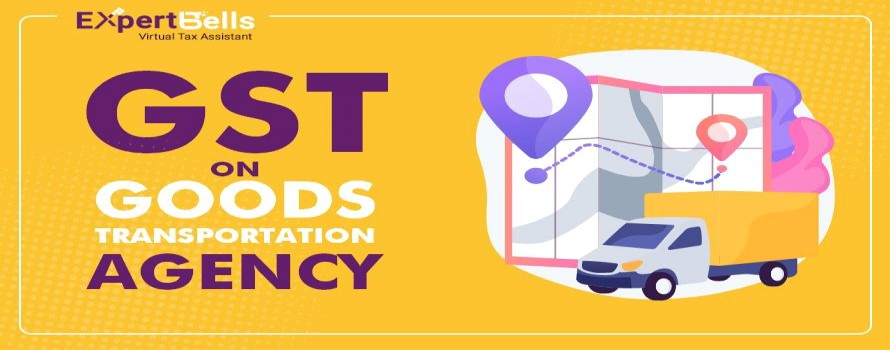GST on Goods Transportation Agency

Applicability of GST
All the services by way of transportation of goods by road are exempt from GST except the services of:
(i) a goods transportation agency
(ii) a courier agency
Definition of Goods Transport Agency
Goods transport agency means any person who provides service in respect of transportation of goods by road and issues consignment note, by whatever name called.
Consignment Note
Consignment Note means a document which is issued by a GTA against the receipt of goods for the purpose of transport of goods by road in a goods carriage, which is serially numbered, and contains the name of the consignor and consignee, registration number of the goods carriage in which the goods are transported, details of the goods transported, details of the place of origin and destination, person liable for paying service tax whether consignor, consignee or the GTA.
Rate of GST in case of Services supplied by GTA
There are two options applicable regarding GST rate on freight. The tax may be paid at the rate of 5% without input tax credit or tax may be paid at a 12% rate with availability of input tax credit.
Option I:
The GST rate in case of service supplied by GTA on transportation of goods is 5% (CGST 2.5% and SGST 2.5%) or IGST 5%. The non-availment of ITC is applicable where GTA himself is liable to pay tax and not where the recipient is liable to pay GST under reverse charge. Therefore, when the recipient pays GST @ 5% on reverse charge basis, he can avail its input tax credit.
Option II:
The GTA has option to pay GST @ 12% [6% plus 6%] under forward charge. In this case, the GTA can avail Input Tax Credit. As the GTA himself will be paying tax, the recipient is not liable to pay GST under reverse charge.
GTA who are having their own vehicles and having huge Input Tax Credit on capital goods may find the option very useful. This option may also be suitable for freight forwarders who provide composite services of packing, clearing and transportation from source to destination basis.
Reverse charge in respect of GTA Services:
Person paying freight to GTA is liable to pay tax under reverse charge. In case of supply of services by a GTA who has not paid tax @ 12% under forward charge to #Specified_Persons, the recipient of service located in taxable territory is liable to pay Tax under reverse charge mechanism.
In other words, the GTA itself is never liable to pay tax, except where the GTA opts to pay tax under forward charge @ 12%.
Specified Persons:
- Factory registered under the Factories Act, 1948
- person registered under GST
- A body corporate established under relevant law
- Co-operative society registered under relevant law
- Partnership firm as well as association of persons
- Society registered under Societies Registration Act, 1860
- Casual taxable person
Exemption to service provided by GTA to unregistered person (other than where reverse charge applies)
Services supplied to unregistered person by GTA (other than where reverse charge applies), the service is exempt.
Service supplied to Government Department
GTA is not liable to pay GST under forward charge for services supplied to Government department, local authority or Government Agency. They will be treated as unregistered person for purpose of the exemption to GTA services, even if they are registered under GST only for purpose of TDS under GST. If the Government department is registered under GST for purposes other than TDS, they will be liable to pay GST under reverse charge if they receive GTA services.
GTA Services specifically exempt
The following services are exempt from payment of tax.
Services provided by a GTA, by way of transport in a goods carriage of:
- Agricultural produce;
- Goods, where consideration charged for the transportation of goods on a consignment transported in a single carriage does not exceed INR 1500;
- Goods, where consideration charged for transportation of all such goods for a single consignee does not exceed INR 750;
- Salt, milk and food grain including flour, pulses and rice;
- Organic manure;
- Newspaper or magazines registered with the Registrar of Newspapers;
- Relief materials meant for victims of natural or man-made disasters, calamities, accidents; or
- Defence or military equipments.
Written By
CA Palak S Jain
CMO, Financial Analyst
Expertbells Consulting Private Limited
Update on 03 October,2021